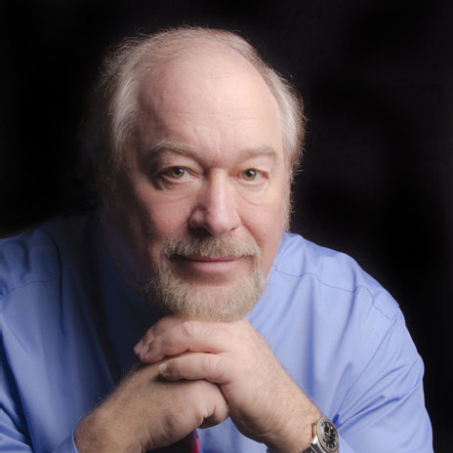About Us
Steven M. Sultanoff, Ph.D.
Dr. Steven M. Sultanoff received his PhD from the University of California, Berkeley. He is a psychologist, university professor (Pepperdine University), consultant, and professional speaker and trainer. He has offered over 300 live, full-day, continuing education (CE) seminars for Psychologists, Marriage and Family Therapists, Professional Clinical Counselors, and Clinical Social Workers. His live and online programs include Cognitive Therapy, Clinical Supervision, Therapeutic Uses of Humor, and Emotional Intelligence. All of his workshops include core material as well as innovative concepts that are original and expand traditional thinking.
Dr. Sultanoff’s clinical background includes 7 years of training in Person Centered Therapy, 2 years in Psychodynamic Training, and 10 years of training in Cognitive Behavioral Therapy (CBT). Today he views his therapy style as a blend of a person-centered essence with a cognitive therapy process. His clinical passion focuses on the therapeutic relationship, and his presence with clients reflects that passion. His person-centered essence is the catalyst for his CBT style that facilitates clients to connect their feelings with their thoughts and then to change thinking in order to relieve emotional and behavioral distress.
Throughout his career Dr. Sultanoff has taught the doctoral and masters level courses at an assortment of universities including University of California, Berkeley; University of California, Irvine; California State University, Long Beach; San Francisco State University; and Pepperdine University. His passion for teaching focuses on therapist training. To fulfill that passion, Dr. Sultanoff integrates deliberate practice training into his master’s level classes and privately offers similar training for licensed professionals.
Dr. Sultanoff began his career as a continuing education presenter in the late 1990’s, and he continued to develop over 14 CE programs in Clinical Supervision, Cognitive Behavioral Therapy, Humor in Psychotherapy, and Emotional Intelligence. During the early years of continuing education, Dr. Sultanoff presented a multitude of live programs and has offered over 300 full-day CE workshops. Most recently he has focused on creating online CE programs.
Dr. Sultanoff frequently appears in the visual and print media. He appears on “What’s Your Ailment!” with Comedian Maria Bamford discussing mental health and humor (streaming through “www.Topic.com”), and has appeared on The Morning Show (FOX), STARZ, Lifetime, and PBS. He is frequently quoted in national publications such as Time, Prevention, USA Today, Forbes, Chicago Tribune, LA Times, Reader’s Digest, Men’s Health, Women’s, Health, Weight Watcher’s Magazine, Kiplinger Report, and many more.
If you would like to learn more about Dr. Sultanoff’s professional journey, please read his intereview with Authority Magazine. The interview includes “Tips to be Healthy to Age 100.”
Supervision Expertise:
With many years of training and experience as a supervisor and trainer, in 1998 he developed his first Supervision Continuing Education training program. The success and popularity of that program led to 10 additional Supervision training programs developed over the following 16 years. As online training became increasingly popular, Dr. Sultanoff developed 4 additional Supervision training programs that are now online and are PowerPoint driven with video demonstrations.
Today, Dr. Sultanoff is following his greatest passion in therapist training by focusing his supervision and training expertise by offering live, deliberate practice programs for students, unlicensed professionals, and licensed professionals.
Therapeutic Humor Expertise:
With over 35 years in the therapeutic humor field, Dr. Sultanoff has authored many innovative articles including an article published in the APA journal The Humanist Psychologist and has written a pioneering chapter on Humor in Psychotherapy in the text “Play Therapy with Adults.” In 2020 he published a chapter on humor in the classroom in the book, “Teach Psychology with a Sense of Humor.” Dr. Sultanoff is an internationally recognized expert in therapeutic humor and past president of the Association for Applied and Therapeutic Humor (AATH). In 2012 he received the AATH “Lifetime Achievement Award.”
His online continuing education programs in therapeutic humor offer an innovative perspective on humor combined with his expertise as a traditionally trained, master psychotherapist.
Dr. Sultanoff has taught at more than 10 colleges and universities. His family and friends see him as a guy who just cannot hold down a job.
For the non-therapists, Dr. Sultanoff offers many online audio and video interviews on humor.
His web site (humormatters.com), created last century and soon to be a technology antique, offers a wealth of information on therapeutic humor as well as lots of topical humor.
Cognitive Therapy Expertise:
Over the past 30 years he has taught CBT at the graduate level. Dr. Sultanoff is an expert on emotions (both distressing–depression, anxiety, anger, resentment, guilt, etc. and uplifting–joy, excitement, delight, etc.) and has linked specific emotions to their underlying cognitive patterns. This linkage has advanced the practice of cognitive therapy by assisting therapists to connect a specific emotion to a specific cognition or a cognition to an emotion thus facilitating the cognitive restructuring process.

